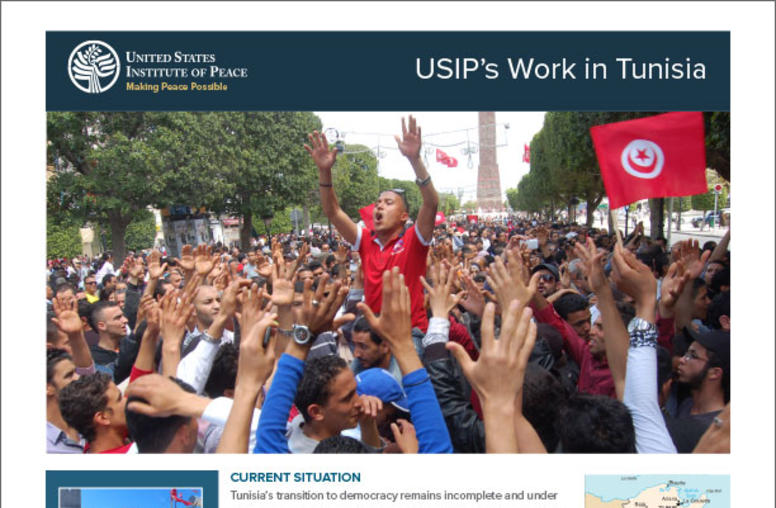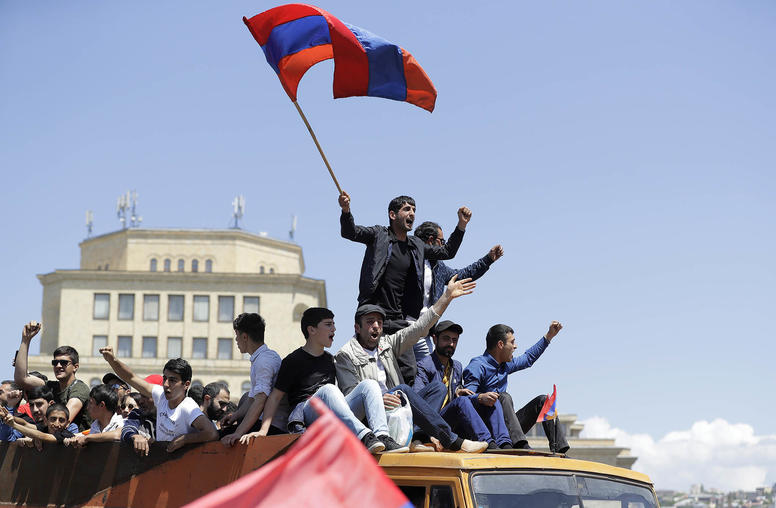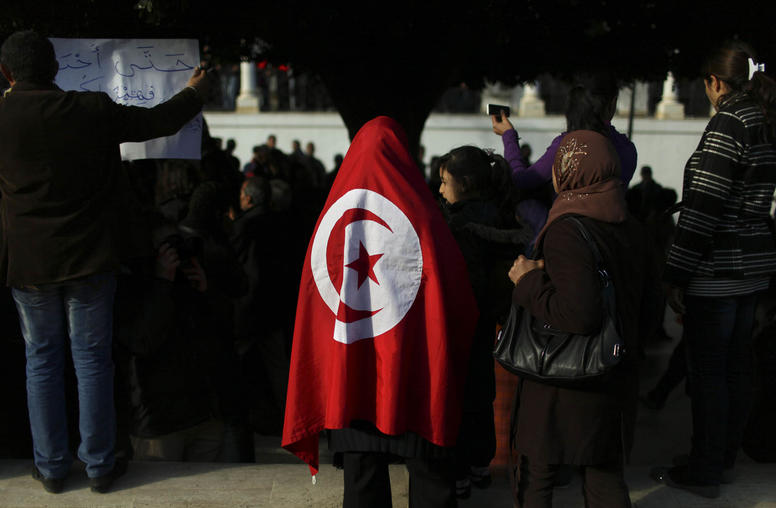USIP’s Robert Perito, director of the security sector governance center, files this dispatch from Tunisia which is experiencing a transition to democracy from authoritarian rule.
January 26, 2012
By Robert Perito
Photo: Robert Perito outside the Ministry of Interior, Tunis
One year after the revolution that launched the Arab Spring, the atmosphere is peaceful but exciting here in Tunis. People are proud of their country’s achievements. Tunisia continues to set the regional standard for progress toward democracy and security sector reform. Hotels are full of delegations ranging from graduate students to high-level diplomatic missions, all eager to learn about the Tunisian transition.
Yet, much is still to be decided. Tunisians believe the long-term solutions to their problems are economic and are waiting for tourists and investors to return. An elected national assembly is drafting a new constitution that will redefine the relationship between citizens, the security services and the state. Tunisia's small, U.S.-trained army supported the revolution and enjoys popular esteem, while the Interior Ministry and police were tools of the dictatorship and have resisted change.
The challenge is how to reform the civilian security forces without destabilizing the country or leaving citizens vulnerable to terrorism and crime.
These and other issues are discussed openly and constantly, a new and exciting experience for people emerging from authoritarian rule and experiencing democracy for the first time. The country is like one big debating society. Everyone is talking about the future of the country.
Explore Further
- Dispatch from Libya | Robert Perito | January 30, 2012
- Security Sector Governance Center of Innovation
- The Arab Awakening
As the dramatic events of the Arab Spring turn to the more mundane yet vital work of governance, constitution writing and peacebuilding, USIP is on the ground, bringing its unique brand of action and expertise to the effort. - USIP Special Report on "Security Sector Transformation in North Africa and the Middle East"



